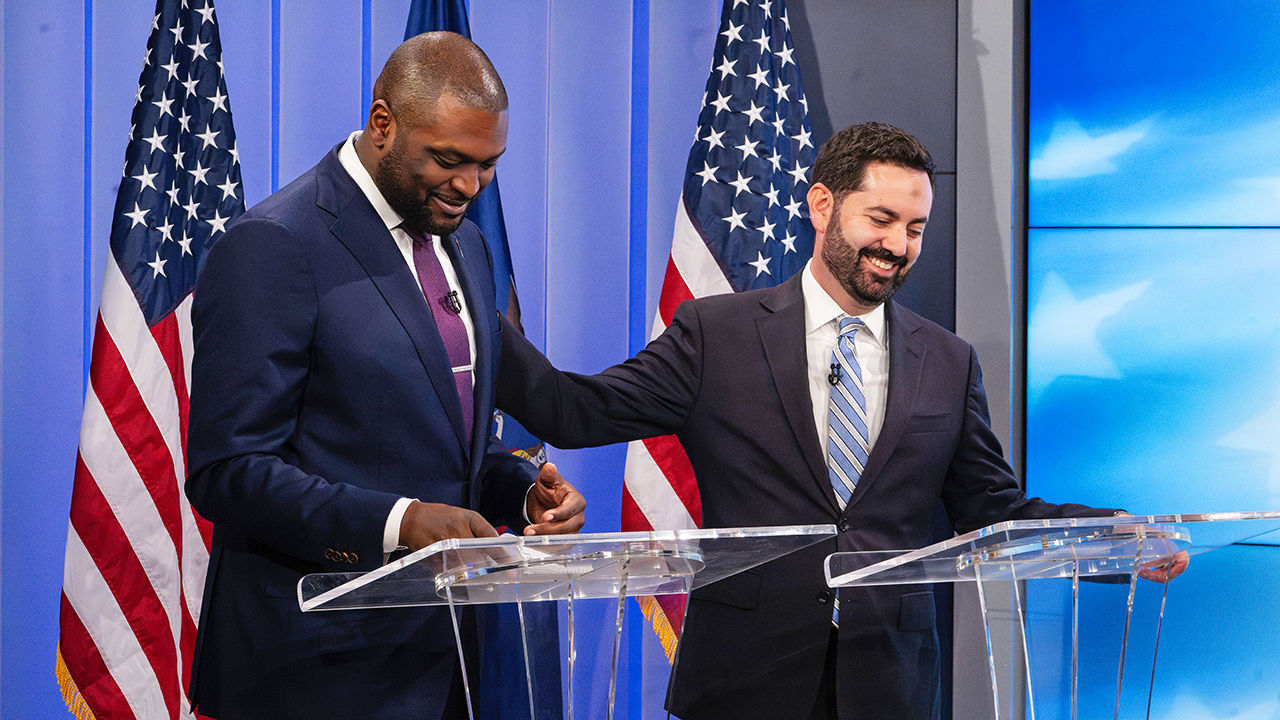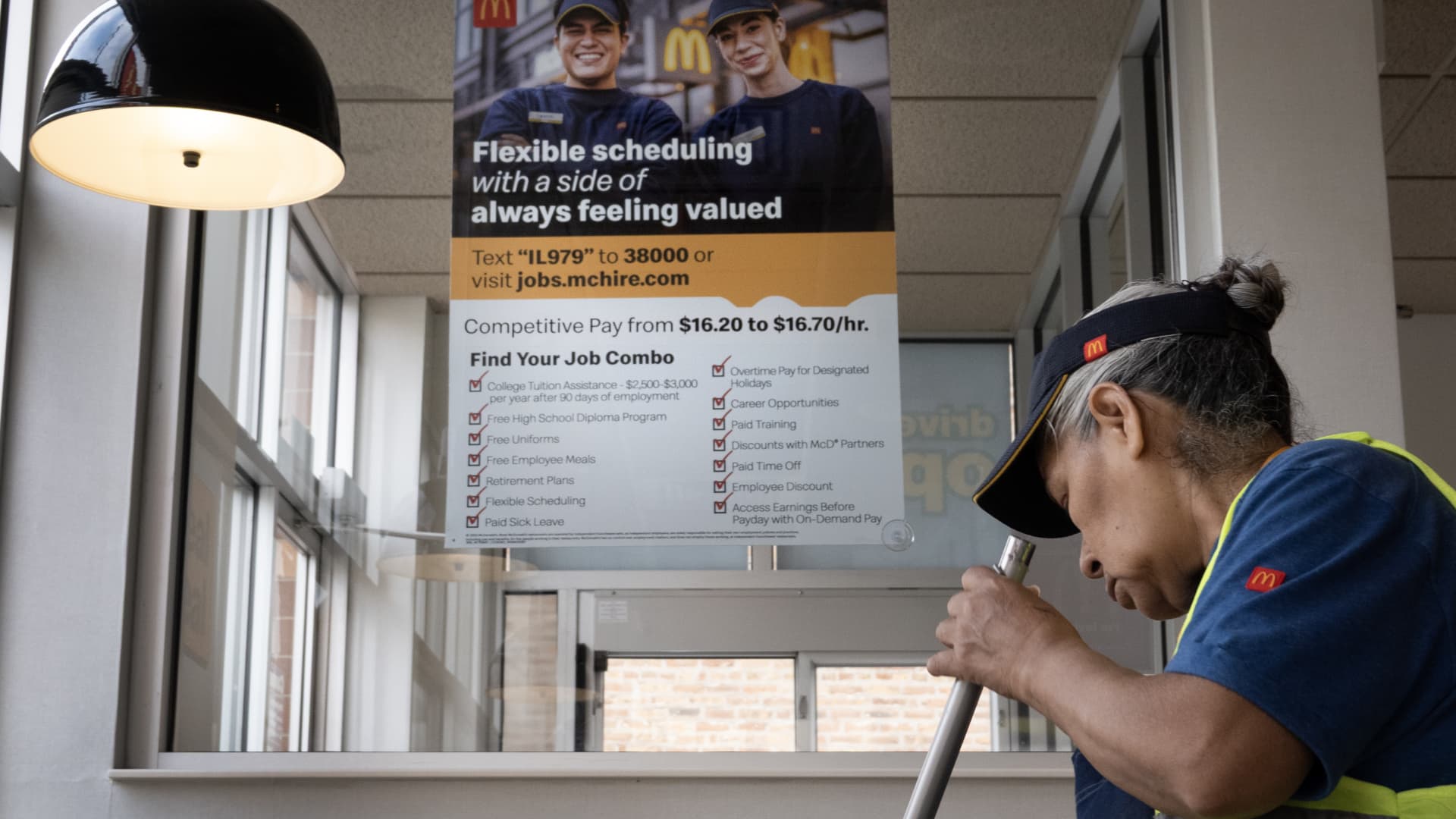MIKE LAWLER, a Republican congressman representing New York’s 17th congressional district, considers himself a moderate. Mondaire Jones, a former congressman challenging Mr Lawler, also considers himself a moderate. Neither candidate in this swing race agrees with the other’s self-description. “At the end of the day, if it talks like a socialist, votes like a socialist—folks, it’s socialist,” Mr Lawler said in a recent debate. Mr Jones hit back, “If it talks like a fascist and supports a fascist for president of the United States for the third consecutive presidential election, then it’s a mini-fascist.”
That hyperbole probably won’t sway the contest’s outcome, which is driven more by national trends, but this mostly suburban district north of New York City will help influence which party will control the House of Representatives. Though Senate races get most of the attention, the country’s lower chamber also can make or break the next president’s agenda.
By this point in the election cycle, everyone knows that the presidential election will be decided in six or seven swing states, and that the electoral college gives states in the upper Midwest an outsize say over the future of the free world. The electorate that will determine what the next president will be able to do—the voters who will pick the House majority—are different. During the 2022 midterm elections Republican wins in California and New York, two states used to being ignored in presidential elections, gave the party its majority. Both sides agree that those states could make the difference again. The Economist’s forecast shows that seven of the 20 closest House races are in either New York or California, and are now held by Republicans like Mr Lawler.
Unlike the electoral college, which gives the Republican candidate an advantage worth about two points of the national vote share in this election, the House map is fair. Democrats used to complain about being at a disadvantage due to gerrymandering (the practice of politicians drawing district maps to their advantage). Now we estimate Democrats need only win by one point to have a 50:50 chance of controlling the House.
The tightness in national elections means that control of the House changes often. Between 1955 and 1995 Democrats had the majority. Since 1995 control has switched five times. But the House hasn’t flipped in the opposite direction to a presidential race since the 19th century, and both parties agree that it’s unlikely to happen this year. They also concur that whoever wins a majority will have a narrow one. That means that if Donald Trump wins, Republicans are quite likely to have a House and Senate majority (Republicans are favourites to win the Senate regardless of who takes the White House).
“We’ve expanded the map of competitive districts, which gives us more paths,” says a House Democratic operative, referring to how Joe Biden’s departure from the presidential race boosted down-ballot candidates. Even so, the Democrat believes that only around three dozen races are truly competitive, a view shared by Republican strategists: “I think this really comes down ultimately to a Republican or Democratic plus-five majority.”
Dial five for shutdown
The difference between a five- and ten-seat majority could have tremendous implications for public policy, particularly if Republicans win the House. Their current narrow majority made governing nearly impossible for the past two years, as the party’s nihilists had disproportionate clout. The latest fiscal year was nearly halfway over, for example, by the time Congress approved a permanent government-funding bill. Given that the next president’s ability to govern rides on the shape of Congress, it is perhaps surprising how little money is spent on House campaigns compared with Senate races (let alone the presidential contest).
Congressional Leadership Fund, the most important Republican super PAC for winning the House, raised $81.4m from July to September. House Majority PAC, the equivalent Democratic group, pulled in about $99m. In the Texas Senate race alone the two candidates have raised a total of $166m. The presidential candidates have mustered $1.4bn (campaign groups have gathered an additional $1.3bn). This reflects the fact that House races have been eaten by national politics. If either Kamala Harris or Mr Trump somehow does end up controlling the White House but not the House, it will be because of candidates who managed to defy political gravity in their small corner of the country.
New York’s 17th district is an example. There are almost 90,000 more Democrats than Republicans in Mr Lawler’s seat, which Mr Biden won by double digits in 2020. The candidate will have to buck national trends if he is to remain in Congress. On a recent Sunday, he visited New Life Pentecostal Church in New York’s Hudson Valley. Its pastor, Denochy Cowan, does not endorse candidates, but welcomes any to speak to his congregation, made up of immigrants from Antigua, Haiti, Ghana, Guyana, Jamaica and Kenya. Mr Lawler acknowledged that he may not have much in common with those in the pews, but said it’s OK because that’s what democracy is all about. Paraphrasing Ed Koch, a former New York City mayor, he joked, “If you agree with me on nine out of 12 things, vote for me. If you agree with me on 12 out of 12 things, have your head examined.”■
Stay on top of American politics with The US in brief, our daily newsletter with fast analysis of the most important electoral stories, and Checks and Balance, a weekly note from our Lexington columnist that examines the state of American democracy and the issues that matter to voters.

 Economics1 week ago
Economics1 week ago
 Accounting1 week ago
Accounting1 week ago
 Economics1 week ago
Economics1 week ago
 Economics1 week ago
Economics1 week ago
 Personal Finance1 week ago
Personal Finance1 week ago
 Blog Post4 days ago
Blog Post4 days ago
 Economics5 days ago
Economics5 days ago
 Personal Finance7 days ago
Personal Finance7 days ago




















